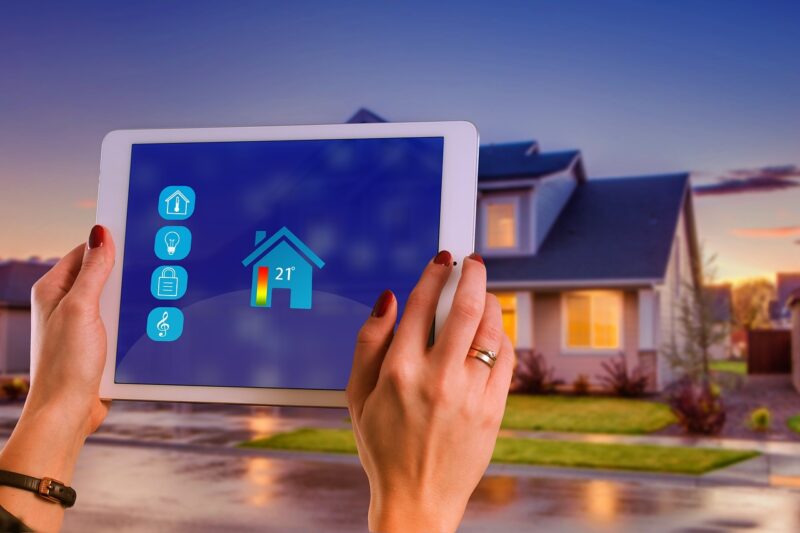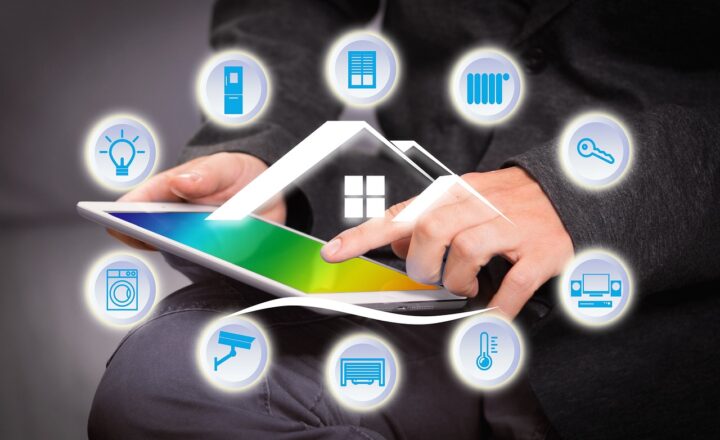How AI-Powered Technologies Are Transforming the Way We Live in Smart Homes
November 17, 2024

The advent of Artificial Intelligence (AI) is revolutionizing numerous aspects of modern life, with smart homes being one of the most radical transformations. As technology marches forward, the concept of a smart home has evolved beyond simple automation to an intelligent ecosystem that adapts to our needs, enhances comfort, and improves energy efficiency. We are witnessing a growing integration of AI in various smart devices that make our living spaces not only smarter but also safer and more efficient.
1. Understanding Smart Homes and AI Integration
A smart home is a residence equipped with devices that automate tasks and improve functionality through internet connectivity. The integration of AI into these devices allows them to learn from user behavior, making them increasingly efficient and personalized.
Smart home devices now include:
- Smart Thermostats: Regulate home temperature based on occupant habits.
- Smart Security Systems: Offer real-time surveillance and alerts.
- Smart Lighting: Adjust brightness and color based on time of day or activity.
- Smart Appliances: From refrigerators to washing machines, these devices optimize their functions based on user patterns.
Understanding how these devices work and learning from AI algorithms is crucial to realizing the full potential of smart homes.
2. Benefits of AI in Smart Homes
AI-powered technologies bring numerous benefits to smart homes, enhancing both quality of life and efficiency. Here are several key advantages:
- Energy Efficiency: Smart thermostats and lighting systems adjust their operation based on real-time data, significantly lowering energy consumption and reducing utility bills.
- Enhanced Security: AI-driven security systems can recognize unusual patterns and alert homeowners of potential threats. Facial recognition cameras and smart locks ensure that safety remains uncompromised.
- Convenience: AI transforms mundane household tasks into automated routines. Voice assistants can manage everything from grocery lists to controlling other smart devices, making daily life easier.
- Personalization: AI learns user preferences over time, allowing it to tailor recommendations and automate tasks according to individual lifestyles.
By improving these aspects, AI technology not only simplifies life but also adds value to it, leading to an optimal living experience.
3. Key AI Technologies Reshaping Smart Homes
Various AI technologies are driving the smart home revolution, making devices more intuitive and responsive. Here are the key players:
- Machine Learning: This AI technology allows devices to learn from user interactions, adapting over time to provide better service.
- Natural Language Processing (NLP): Smart assistants like Alexa, Google Assistant, and Siri utilize NLP to understand and respond to spoken commands, making human-device interaction seamless.
- Computer Vision: Used in security cameras and smart appliances, this technology enables devices to recognize objects or people, enhancing security and automation.
- Data Analytics: AI analyzes vast amounts of data from smart devices to optimize performance, assess trends, and predict user needs.
Understanding these technologies not only illustrates their benefits but also emphasizes the innovation behind smart homes.
4. The Future of AI in Smart Homes
As AI technology continues to advance, the future holds even more remarkable developments for smart homes:
- Integration of IoT: The Internet of Things (IoT) will unify smart devices, making communication between them more effective and responsive.
- Increased Interoperability: Future smart homes may employ open standards that allow devices from different manufacturers to work together seamlessly.
- Improved User Interfaces: Advances in AI could lead to more intuitive interfaces, possibly allowing devices to interact with users through augmented or virtual reality.
- Greater Focus on Sustainability: Smart homes powered by AI will likely focus on eco-friendly technologies, promoting sustainable living without sacrificing comfort.
The coming years promise an exciting evolution in how we experience our living spaces through technology.
5. Challenges and Considerations
Despite the advantages, several challenges must be addressed:
- Privacy Concerns: As more data is collected from users, concerns about security and privacy necessitate robust protection measures.
- Integration Complexity: The variety of devices and platforms complicates interoperability, making it difficult for consumers to navigate smart home solutions.
- Dependence on Technology: An over-reliance on AI can lead to skill degradation in home management and basic tasks among users.
Addressing these concerns will be essential as technology continues to permeate our homes and lives.
Conclusion
AI-powered technologies are transforming the way we live in smart homes, creating environments that are more efficient, secure, and user-friendly. With a myriad of benefits and an exciting future ahead, there is no doubt that AI will continue to shape our domestic experiences.
As we embrace these innovations, it is also important to stay aware of the challenges lurking beneath the surface. Navigating the smart home landscape proactively will ensure that we harness the full potential of AI while addressing privacy, integration, and dependency concerns.
The smart home era has only begun, and the possibilities are endless.








